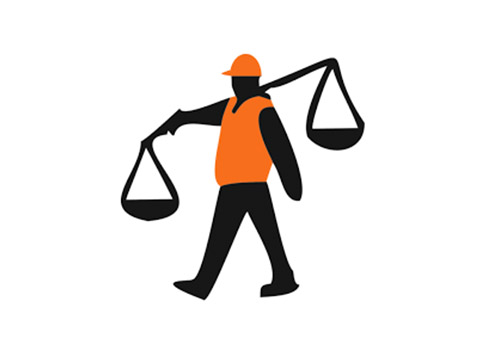This article is written by Swetalika Das, from Amity University, Kolkata. This is an exhaustive article about the status of unemployment compensation in South Carolina.
Table of Contents
Introduction
Unemployment compensation is a monetary benefit provided to the people who lost their jobs, not because of their fault but due to some other circumstances. The issues of unemployment are all over the world especially at the time of economic crisis. However, the unemployment compensation program has benefited many unemployed people.
In South Carolina, a southern state in the United States, the unemployment rate is not as high as compared to the other states in the country, however, according to the sources, only 14.8% of unemployed people manage to receive the unemployment compensation benefits and the other 85% struggle to receive it. Also, the rank of South Carolina is very low in terms of providing unemployment compensation. Moreover, the process of getting unemployment benefits in South Carolina is not easy, it is a very complicated process.
This article gives a brief insight into the eligibility requirements to receive unemployment compensation, the process to file for the benefits, amount, and duration of unemployment compensation
A brief overview of unemployment compensation in South Carolina
The key eligibility requirements
The reasons for unemployment vary from person to person. As there can be different reasons for unemployment, the benefit must be specific to only the person who meets the required eligibility criteria set by the Government to provide maximum benefit.
Every state in the United States has its eligibility requirements to receive unemployment benefits. Similarly, the South Carolina state also has its own rules and regulations regarding unemployment compensation. The Department of Employment and Workforce (DEW) of South Carolina regulates all the activities and sets the eligibility criteria. To apply for the unemployment compensation program the person must fulfil the following requirements:
- The past earnings of the applicant must fulfil the minimum earning requirements set by the Government.
- The cause of unemployment must not be caused due to the applicant’s fault.
- The applicant must be readily available for work and must be able to do the work.
- The applicant must be actively seeking new job opportunities.
Minimum earning requirement
In South Carolina, to determine the minimum earning requirement, a base period is taken into consideration to check the recent earnings before the applicant lost his employment.
The base period is the year of employment before losing his work. In South Carolina, the provisions for the base period are mentioned in Chapter 47 of the Department of Employment and Workforce which states that the base period is the first four quarters of the last five quarters years before applying for the compensation claim. It is important to note that the quarter of a year is a three month period which is divided into four quarters for each financial year. Therefore, the four quarters are as follows:
- January-March (1st quarter).
- April-June (2nd quarter).
- July-September (3rd quarter).
- October-December (4th quarter).
For instance, let’s say the applicant filed the claim in January 2021. Then the base period will be from 1st October 2019 through 30th September 2020.
In between the base period, the applicant is required to meet the following guidelines for eligibility:
- The total earning must be $4,455.
- The earning in the highest quarter must be $1,092.
- The total earning must be 1.5 times more than the highest quarter earnings.
The ‘No fault of your own’ requirement
Unemployment due to lay off or reduction in force (RIF)
If the person had laid off from the employment due to some temporary reasons or if the person lost his job due to reduction in force (RIF) which means the person permanently terminated himself from the company due to some issues faced by him while working at the company such as loads of work pressure, unprofessional behaviours from employers, etc. In this case, the person is eligible to meet this requirement and to apply for unemployment compensation.
Unemployment for being fired
Under Section 41-35-120(2) of the South Carolina Code, it is stated that if the person was fired due to his inability, incapacity, or inefficiency, then, he wouldn’t be discharged from the eligibility requirements to apply for unemployment compensation. However, if the person was fired due to his misconduct then he would not be eligible to file for compensation because, in South Carolina, ‘misconduct’ is an intentional act caused to violate the company’s rules and regulations. If an employee intentionally does something which is against the company’s rule then it can be regarded as misconduct.
For instance, if an employee regularly takes leave without having a good cause, shows unprofessional behaviour towards the employer or other staff of the company even after the continuous warnings from the employer, then it means the employee is doing the act intentionally, and hence, it is misconduct.
Even if the act is not exactly misconduct, the employee would not be able to file for compensation due to ‘for cause’. It means the employee has caused severe harm to the company’s reputation or violated the rules but didn’t act on it intentionally. If the person was fired due to ‘or cause’ then the person may not get permission to file for a stipulated time, i.e, 5 weeks to 19 weeks.
Unemployment due to quitting the job
If the person quit the job then he wouldn’t be eligible for an unemployment compensation program until and unless there is a good reason for quitting. The good enough reason includes facing unsafe conditions in the company, bad work culture, or family issues.
For instance, if the employee faced some problems concerning his and his family’s safety but the company didn’t try to help, then he would be eligible for filing for compensation. The good reason must be like the person didn’t find any other way but to quit the job. However, if the person quit the job just because he wasn’t satisfied with the job then he wouldn’t be qualified to file for unemployment compensation.
The person must be available and seeking jobs
According to this requirement, a person must be able to perform the tasks. Also, he must be available for work and looking for job opportunities. Here, the availability for work means the person needs to go for every opportunity that he finds suitable. The person can find a suitable opportunity if the level of work matches with his level of skills and experience if the job gives a good amount of wages or any other facilities provided by the employer.
Section 41-35-110(3) of the South Carolina Code states that a claimant is eligible for unemployment compensation only if he is found to be sincere in searching for jobs. The active search must include two searches conducted through the South Carolina Works Online System (SCWOS) as it makes the searches verified and easy for the department to consider the claimant’s eligibility.
This requirement was held in the case Hyman v. sc emp.security comm. (1959), where the court stated that the condition of availability for work is an important requirement for the exposure of the normal labour market. The applicant must prove that he met all the required guidelines to be eligible for compensation. Also, it is important to prove that the applicant has made several efforts to find a job opportunity but wasn’t able to find one. If the applicant cannot fulfil the above requirements then he wouldn’t be able to receive the benefits.
Filing claims for benefits in South Carolina
Types of claims
The types of claims are provided in Chapter 47 of the Department of Employment and Workforce (DEW). There are two types of claims:
Non-Job Attached Unemployment Claim
A Non-Job Attached Unemployment means an individual is unemployed without having any job. The two types of Non-Job Attached Unemployment Claim are:
Initial Claims: Any individual can file for the claim at the Department office and must state that he is unemployed and is available for the work. Such requests are termed as initial claims by an individual.
Continued Claims: For the further weeks of Non-Job Attached Unemployment, the individual must continue with the filing process by stating the following points:
- The claimant has not worked or earned any wages
- The claimant has never refused to do any work
- The claimant can do the work and is available for the work and is seeking permanent job opportunities.
Job-Attached Unemployment Claims
The Job-Attached Unemployment means unemployment of a person who earns less than his weekly benefit amount or works less than the normal hours due to his incapacity and is employed under an employer. The four types of Job-Attached Unemployment Claims are:
Initial Claims: The Job-Attached employee to whom the employer has asked to work for a week with fewer benefits than the maximum weekly benefit amount. In this type of claim, the employer must prepare a Low Earnings Report. The employee is required to sign and provide his address in the report. Later, the employer shall forward the report to its nearest DEW office.
Eligibility Notification: If an employee has fulfilled all the requirements and is found eligible to receive the benefits then he shall be informed about his weekly benefit amount through a notice which also states the ending dates of the unemployment compensation year. Later, the employer would be instructed that the prescribed amount in the notice is only applicable for the weeks within the benefit year and the employer is required to continue with filing the low earnings report after obtaining the signature from the employee. The filing of the report shall continue till the end of the benefit year.
Ineligibility Notification: If an employee is not having sufficient base period wages for being eligible to receive the unemployment benefits, then he shall be informed by the DEW office.
Continued Claims: If in case the employee is not performing the full-time work and working less than the normal working hours resulting in few earnings for a week than his weekly benefit amount, then the employer is required to submit the low earnings report stating the facts that the claimant is Job-Attached to the employer and the unemployment week mentioned in the report is due to the inability of claimant to perform full-time employment in that period of a week.
How to file for claims?
A person can file for claims through the mail, fax, or online official website of DEW. After the filing process, one must continue with the filing and claim benefits for each week. After receiving the claims, the person would get a notification from the DEW office stating about the unemployment compensation benefit amount and the duration of benefits.
What to do if the claims have been denied?
An appeal can be filed in writing, mail, fax, within ten days from the denial of the claim to the Department of Employment and Workforce (DEW) Appeals division. The appellant must keep a copy of his appeal and the proof of the mail or fax which shows that the appellant has sent the request for appeal.
While waiting for the hearing, the appellant is required to continue with the claims and looking for job opportunities. After the appeal is received, a notice will be provided to the appellant for an Appeal Tribunal Hearing. The hearing may happen either in person or by telephone. After receiving all the evidence from both parties, the DEW Appeal Division will state the decision in writing. If the appellant isn’t satisfied with the decision, then he can file an appeal within ten days from the decision to the Appellate panel. If the appellant is not satisfied with the Panel’s decision then he can appeal within 30 days from the decision to the South Carolina Administrative Law Court.
How is unemployment compensation paid?
The Unemployment compensation is paid according to the following process:
- Firstly, the Businesses or Companies pay the unemployment taxes in place of each worker.
- The taxes are then transferred to the State Government office if a worker is found eligible.
- Lastly, the Government pays the unemployment compensation through the help of the State Government Office.
It is important to note that if a worker has not worked for a long time then he may not get the compensation. However, if the worker has worked for a stipulated time then he can receive the unemployment compensation benefits.
A sneak peek into the amount and duration of unemployment benefits in South Carolina
Amount of Unemployment Benefits
The unemployment benefit amount is provided every week. In South Carolina, the weekly unemployment benefit amount is 50% of the average weekly income in the claimant’s base period. The weekly benefit income is a maximum of $326 and a minimum of $42. The weekly benefit amount and maximum benefit amount are calculated through the wages provided by the employer as stated under Title 41 of the South Carolina Code of Laws.
Duration of Unemployment Benefits
Generally, the claim is introduced for one year from the starting date of the claim. However, the maximum duration of the Unemployment compensation can be up to 20 weeks.
Federal unemployment benefits – the end
Recently on June 27, 2021, the federal unemployment benefits in South Carolina came to an end. The federal unemployment programs were introduced to provide benefits to unemployed individuals or the individuals who were not able to do work due to the COVID 19 pandemic. However, the programs affected the labour capacity of the state and resulted in a shortage of labour in some sectors. It is because of the continuous supply of unemployment benefits. Therefore, to solve this issue the Department of Employment and Workforce (DEW) put an end to the federal unemployment benefits program, however, the standard unemployment benefits still exist. The unemployment programs that came to an end are:
Pandemic Unemployment Assistance (PUA)
This program was for the affected people due to the COVID 19 pandemic. The program aims to benefit the unemployed individuals who were unable to work. It also includes the COVID 19 positive individuals and the individuals who were in quarantine.
Pandemic Emergency Unemployment Compensation (PEUC)
Through the help of this program, claimants were able to extend their unemployment benefits from only 20 weeks to an additional 53 weeks.
Federal Pandemic Unemployment Compensation (FPUC)
The program helped all the categories of unemployed individuals with a weekly additional benefit of $300.
Mixed Earners Unemployment Compensation (MEUC)
This program provides a weekly additional benefit of $100 only to the eligible individuals for unemployment insurance benefits. Also, the eligible individuals must have a self-earned income.
Conclusion
In light of the above discussions, it can be concluded that the state of South Carolina undoubtedly has proper rules and regulations to maintain the activities related to unemployment compensation. However, as mentioned before, according to some sources, the rank of South Carolina in terms of average weekly unemployment benefits is low as compared to the other states in the US.
The differences in unemployment benefits are because of different calculation methods adopted by the states and the different costs of living. The difference in unemployment benefit is set by the states only, they choose the amount of unemployment compensation to replace the claimant’s previous income, in South Carolina the replacement rate is 50%. Also, the maximum duration of benefits in South Carolina is up to 20 weeks, however, in other states, it is up to 26 weeks.
The differences between replacement rate and duration of benefits are what makes a state as best and worst in the ranking of unemployment benefits. However, it depends completely on the state to ensure a balance between unemployment compensation and the economic productivity of a state.
References
- https://sclegal.org/brochures/denied-unemployment-benefits/
- https://www.blr.com/HR-Employment/Performance-Termination/Unemployment-Compensation-in-South-Carolina
- https://www.nolo.com/legal-encyclopedia/collecting-unemployment-benefits-south-carolina.html#:~:text=How%20to%20Appeal%20a%20Denial,to%20the%20DEW’s%20Ap
- https://law.justia.com/codes/south-carolina/2013/title-41/chapter-35/section-41-35-120
- https://www.scstatehouse.gov/coderegs/Chapter%2047.pdf
- https://sclegal.org/wp-content/uploads/2018/02/Denied-Unemployment-Benefits-SCLegal-Brochure.pdf
- https://www.forbes.com/advisor/personal-finance/best-and-worst-states-for-unemployment/
- https://law.justia.com/cases/south-carolina/supreme-court/1959/17528-1.html
LawSikho has created a telegram group for exchanging legal knowledge, referrals and various opportunities. You can click on this link and join:
 Serato DJ Crack 2025Serato DJ PRO Crack
Serato DJ Crack 2025Serato DJ PRO Crack









 Allow notifications
Allow notifications


